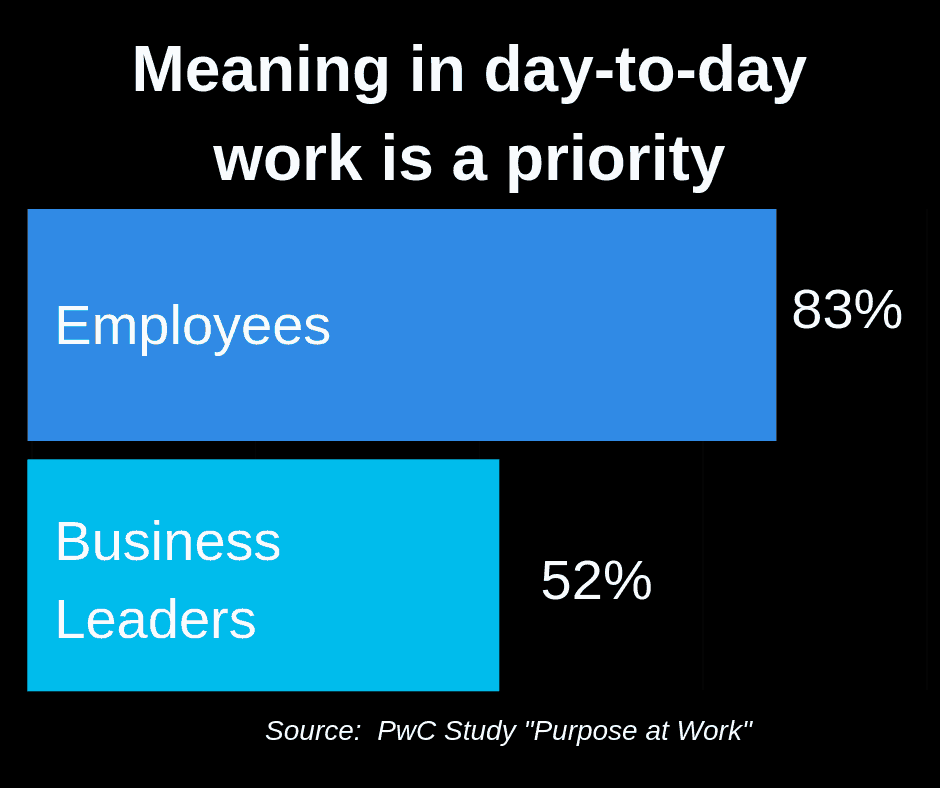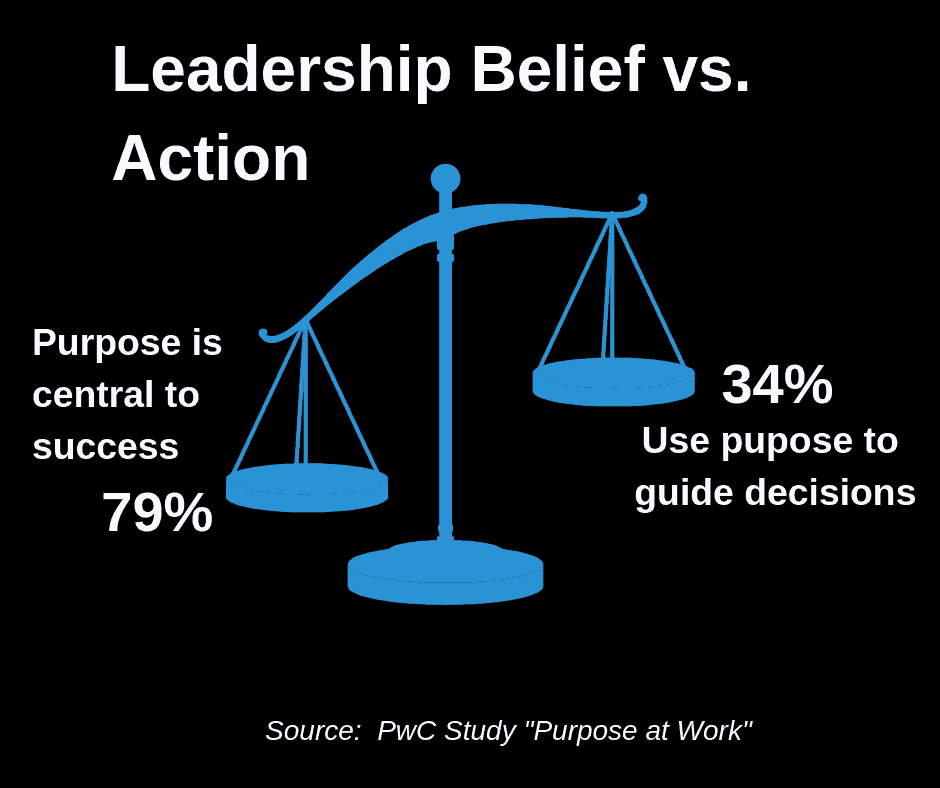Though much has been written recently about the power of a purpose-driven organization, many don’t buy it. Not me! I’m in hook, line, and sinker! The data is conclusive, and we have quantifiable evidence that purpose = profit. Not onboard? Then you need to know these facts:
- In Built to Last, we learned that businesses guided by a purpose beyond making money returned six times more to shareholders than explicitly profit-driven companies.
- Stock returns of purpose-driven companies as captured in the book Firms of Endearment, outperformed the S&P over a 15-year period by a ratio of 10 to 1.3.
- 79% of the 10,000 consumers surveyed said they’re more loyal to purpose brands, and 73% said they would defend them.
- Millennials are 5.3 times more likely to stay with a company when connected to the organization’s purpose. And even non-millennials are 2.5 times more likely to remain.
Leaders usually like data. And this data is rather compelling. Then why is this the look I get from the highest-level executives when I talk about the importance of purpose in strategic planning?

Business Leaders Are From Mars; Employees Are Not
When I read PwC’s study “Putting Purpose to Work,” it hit me like a ton of bricks: leaders and employees simply view the importance of organizational purpose differently.
In determining the value of purpose in the workplace for leaders and employees, there was a big disconnect between the two groups.
Specifically, 83% of employees surveyed considered “meaning in day-to-day work” a top priority compared to only 52% of business leaders surveyed.
Now that is a chasm to cross.

Even more frustrating, according to the study, 79% of business leaders say “purpose is central to business success,” yet only 34% use the organization’s purpose as a guidepost for decision-making.
This difference shouldn’t be surprising. Of course, purpose isn’t used as a Northstar for decision-making. While 79% of the leaders may say purpose is central to business success, only half consider it a priority for them!

The Big Takeaway
As business leaders, you may not share or even appreciate the priorities of your employees. That’s fine. It may not be imperative that you understand their priorities, but it is essential that you recognize them.
When 83% of your employees consider organizational purpose a priority AND there is irrefutable evidence that purpose drives performance, you must get on board!
Bottom line, if organizational purpose matters to your employees, it should matter to you. Share on XSo where do you begin? Check out the book, Firms of Endearment: How World-Class Companies Profit from Purpose and Passion and contact me to explore how your organization can begin to leverage the power of purpose.
Work well,


